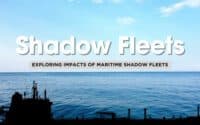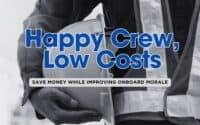15 Often Overlooked Maritime Laws That Could Save Shipowners Millions

While most shipowners are familiar with major conventions like SOLAS (Safety of Life at Sea) and MARPOL (Marine Pollution), there are lesser-known regulations that, when leveraged correctly, can save millions in fines, taxes, and operational costs. Here, we uncover 15 often overlooked yet vital maritime laws that every savvy shipowner should know.
Disclaimer: This article is for informational purposes only. Always consult a maritime legal expert for advice specific to your situation.

1. The "Right of Innocent Passage" (UNCLOS, Article 19)
The United Nations Convention on the Law of the Sea (UNCLOS) grants ships the "right of innocent passage" through territorial waters of other states, provided the passage is not prejudicial to the peace, good order, or security of the state. What many shipowners overlook is the financial implications of this law:
- Cost Savings: By charting routes through territorial waters rather than navigating exclusively in high seas or exclusive economic zones (EEZs), shipowners can significantly reduce fuel costs and transit times. For instance, transiting through certain straits or narrow channels governed by this law can cut days off shipping schedules.
- Legal Insight: Ensure compliance with the criteria for "innocent passage" to avoid detainment. Activities like fishing or military exercises during passage can void this right, leading to fines or delays.
2. "Cabotage Laws" and Coastal Trade Exemptions
Cabotage laws restrict the transport of goods or passengers between two points in the same country to domestically registered ships. While this might seem restrictive, there are key exemptions in certain countries that can save shipowners substantial amounts:
- Tax Benefits: Some nations, like Indonesia and the Philippines, allow exemptions for foreign-flagged vessels under specific conditions, such as serving underserved regions or operating on government contracts.
- Operational Insight: If your shipping operations involve domestic routes in countries with strict cabotage laws, applying for exemptions or strategically flagging your vessel can bypass hefty fines and unlock new revenue streams.
3. "Bunker Delivery Notes" Compliance (MARPOL Annex VI)
Under MARPOL Annex VI, all ships must maintain accurate bunker delivery notes (BDNs) detailing the sulfur content of fuel used. While this is a well-known rule, what many shipowners miss is how meticulous compliance can actually result in savings:
- Avoid Fines: Non-compliance fines can range from $5,000 to over $500,000 depending on the jurisdiction. Maintaining flawless BDN records ensures shipowners are never penalized during port state inspections.
- Rebates: Some regions, such as parts of the EU, offer tax incentives or rebates for ships using compliant low-sulfur fuel, but only if detailed documentation is provided.
- Pro Tip: Digitizing BDN records and adopting automated fuel management systems ensures compliance while reducing administrative overhead.
4. The "Hague-Visby Rules" on Carrier Liability for Cargo Damage
The Hague-Visby Rules govern carrier liability for damage to cargo during international shipment. While most shipowners are aware of their obligation to provide seaworthy ships, few realize how the rules’ nuances can work to their advantage:
- Limiting Liability: Shipowners can cap their liability to about 667.67 Special Drawing Rights (SDRs) per package or unit of cargo. As of 2024, this equates to roughly $900 per package. By properly documenting cargo and ensuring contracts explicitly reference this limit, shipowners can protect themselves from excessive claims.
- Pro Tip: Always verify that the Bill of Lading includes clear terms that invoke the Hague-Visby Rules. Missteps in documentation could waive this protection and lead to costly disputes.
5. "Limitation of Liability for Maritime Claims" (LLMC Convention)
The LLMC Convention allows shipowners to limit their financial liability for claims such as property damage, loss of life, or environmental harm arising from incidents at sea. This law’s tiered system sets liability limits based on vessel size and gross tonnage:
- Savings Example: After an accident, liability is calculated using the ship's gross tonnage and a pre-determined SDR value. For instance, a 30,000-ton ship might face a capped liability of $15 million under LLMC rules, even if the claims far exceed this amount.
- Actionable Tip: Ensure your ship is registered in a country that adheres to the LLMC Convention, as this protection is not universal. Additionally, maintain adequate liability insurance aligned with LLMC limits for maximum protection.
6. "Salvage Awards" and the Lloyd's Open Form (LOF)
When a ship is in distress and requires salvage assistance, the terms of the Lloyd's Open Form (LOF) often dictate compensation for the salvor. Few shipowners understand how opting for an LOF over negotiated salvage contracts can save money:
- "No Cure, No Pay" Principle: Under LOF, salvors are only compensated if the salvage is successful, eliminating upfront financial risks for shipowners.
- Award Caps: Salvage awards under LOF are calculated based on the value of the salvaged property, with provisions to prevent excessive demands.
- Pro Tip: Use LOF when possible, and ensure clear communication about the vessel’s cargo and condition to avoid disputes over award calculations.
7. The "Rotterdam Rules" and Multimodal Transport Efficiency
The Rotterdam Rules extend liability and governance to cover multimodal transport, not just ocean carriage. Though not universally adopted, these rules offer advantages to shipowners dealing with complex shipping chains:
- Streamlined Liability: Unlike fragmented liability under other conventions, the Rotterdam Rules provide end-to-end coverage across various transport modes (ship, rail, truck). This reduces disputes and minimizes potential double claims.
- Savings Example: A shipowner transporting cargo from port to inland destinations under a single bill of lading can simplify claims processes and avoid costly legal battles.
- Pro Tip: Use contracts that explicitly reference the Rotterdam Rules when dealing with multimodal shipments to streamline operations and shield yourself from overlapping liabilities.
8. "Ballast Water Management Convention" Compliance Rewards
The Ballast Water Management Convention (BWMC) requires ships to manage and treat ballast water to prevent the spread of invasive species. While compliance can seem costly, several regions offer incentives for early adopters of advanced treatment systems:
- Tax Benefits: Ports in countries like Singapore and the Netherlands offer reduced port fees for ships equipped with approved ballast water treatment systems.
- Avoid Penalties: Non-compliance penalties for untreated ballast discharge can exceed $50,000 per incident in some jurisdictions. Investing in compliant systems now can save shipowners millions in future fines.
- Pro Tip: Research regional incentives for retrofitting vessels with compliant ballast systems and consider leasing advanced equipment to minimize upfront costs.
9. The "General Average" Rule in Maritime Salvage
Under the centuries-old General Average principle, all parties in a maritime venture—cargo owners, shipowners, and insurers—share losses incurred to save the voyage. Many shipowners fail to maximize the potential financial relief this rule provides:
- Cost Sharing: If a shipowner jettisons cargo or incurs damage during an emergency to save the vessel, they can recover a portion of the costs from cargo owners under General Average.
- Savings Tip: Ensure proper documentation of incidents and expenses during emergencies to enforce cost-sharing agreements effectively.
- Pro Tip: Use General Average declarations as leverage during negotiations with insurers and cargo owners, ensuring fair compensation while avoiding prolonged disputes.
10. Port State Control (PSC) Transparency Requirements
Port State Control inspections are vital to maintaining global shipping safety, but shipowners often overlook how transparency with PSC authorities can save money. By voluntarily disclosing minor deficiencies, shipowners can avoid being targeted for more intensive inspections.
- Savings Insight: Ships flagged for repeat deficiencies face detentions that can cost tens of thousands of dollars in delayed schedules and additional inspections. Proactive compliance reduces these risks.
- Pro Tip: Use real-time reporting software to identify and rectify minor issues before entering port, presenting PSC officers with a record of resolved deficiencies to build trust.
11. Sulphur Emission Control Area (SECA) Tax Incentives
Many shipowners view compliance with Sulphur Emission Control Area (SECA) regulations as a cost burden, but certain countries offer financial incentives for compliant operations.
- Incentive Examples: Norway and Sweden provide tax rebates and reduced port fees for vessels using low-sulfur fuel or exhaust cleaning systems like scrubbers.
- Pro Tip: Plan refueling at ports offering low-sulfur fuel subsidies and log compliance data meticulously to qualify for financial benefits.
12. Maritime Labor Convention (MLC) Crew Welfare Subsidies
The MLC sets global standards for seafarer welfare, including minimum wage, medical care, and working conditions. While compliance is mandatory, some governments and organizations offer subsidies for exceeding the requirements.
- Cost Offset: Countries like Denmark and Singapore provide grants for implementing enhanced crew welfare programs, such as onboard training or improved living conditions.
- Pro Tip: Collaborate with maritime welfare organizations to access funding for crew-centric improvements, reducing both operational costs and crew turnover.
13. Customs Bond Waivers for Certain Cargo Types
Customs bonds are typically required to guarantee payment of duties and taxes on imported goods. However, certain types of cargo, such as humanitarian aid, military supplies, or diplomatic shipments, may qualify for customs bond waivers in specific jurisdictions.
- Savings Insight: Waiving customs bonds can save shipowners thousands of dollars per voyage, especially for frequent shipments of eligible cargo.
- Pro Tip: Verify eligibility for waivers based on cargo type and destination country, and include supporting documentation to streamline the approval process.
14. Tax Exemptions for "Flag of Convenience" Registration
Registering ships under "flags of convenience" (FOC), such as Panama, Liberia, or the Marshall Islands, is a common strategy to reduce operational costs. While often criticized, this practice offers legitimate tax exemptions and reduced regulatory burdens.
- Cost Savings: Shipowners can save millions annually on corporate taxes, crew wages, and insurance premiums by leveraging FOC benefits.
- Pro Tip: Conduct a cost-benefit analysis of flagging under an FOC versus maintaining a domestic registration, factoring in compliance, reputational impact, and long-term cost implications.
15. Limited Liability for Wreck Removal Costs (Nairobi WRC)
The Nairobi International Convention on the Removal of Wrecks (WRC) limits a shipowner’s liability for wreck removal to the insured value of the vessel in jurisdictions that have ratified the convention.
- Savings Insight: Without this limitation, wreck removal costs can run into millions, especially in environmentally sensitive areas.
- Pro Tip: Ensure your ship is registered in a country that has ratified the WRC and maintain adequate wreck removal insurance to cap exposure to these high costs.
Additional References
International Maritime Organization (IMO)
Description: The IMO is a specialized agency of the United Nations responsible for regulating shipping and ensuring maritime safety, security, and environmental protection.
URL: https://www.imo.org
United Nations Convention on the Law of the Sea (UNCLOS)
Description: UNCLOS is an international treaty defining the rights and responsibilities of nations regarding the world's oceans, establishing guidelines for navigation, natural resources, and environmental protection.
URL: https://www.un.org
International Transport Workers’ Federation (ITF)
Description: The ITF represents transport workers worldwide and works to improve conditions, safety, and regulations for seafarers, addressing issues like Flags of Convenience.
URL: https://www.itfglobal.org
Paris Memorandum of Understanding (Paris MoU)
Description: The Paris MoU is a port state control organization that inspects ships to verify their compliance with international safety and environmental standards.
URL: https://www.parismou.org
Lloyd’s Register
Description: Lloyd’s Register provides classification, compliance, and consultancy services to the maritime industry, ensuring vessels meet safety and performance standards.
URL: https://www.lr.org
Table Summary
| ShipUniverse: 15 Maritime Laws That Could Save Shipowners Millions | ||
| Law | Key Insight | How It Saves Money |
| 1. Right of Innocent Passage | Allows ships to pass through territorial waters of other states as long as they comply with the rules of non-prejudicial passage. | Cuts transit times and fuel costs by charting shorter routes through territorial waters. |
| 2. Cabotage Laws Exemptions | Certain nations provide exemptions to foreign vessels for underserved routes or government contracts. | Bypassing restrictions opens up profitable domestic trade opportunities and avoids fines. |
| 3. Bunker Delivery Notes (BDNs) | Requires accurate documentation of fuel sulfur content under MARPOL Annex VI. | Avoids hefty fines and can qualify ships for tax incentives in low-sulfur zones. |
| 4. Hague-Visby Rules | Limits carrier liability for cargo damage to a fixed amount per package or unit. | Caps liability, protecting shipowners from excessive claims. |
| 5. LLMC Convention | Sets financial limits for shipowner liability based on vessel size. | Protects against catastrophic financial exposure from accidents or claims. |
| 6. Salvage Awards (LOF) | “No cure, no pay” principle ensures salvors are paid only if successful. | Eliminates upfront costs and caps salvage award claims. |
| 7. Rotterdam Rules | Covers multimodal transport, streamlining liability across different transport modes. | Simplifies claims, saving legal fees and operational delays. |
| 8. Ballast Water Management Convention | Requires ballast water treatment to prevent invasive species spread. | Avoids fines and unlocks port fee discounts in eco-friendly regions. |
| 9. General Average Rule | Distributes costs of emergency measures among all parties involved in the venture. | Reduces financial strain on shipowners during emergencies. |
| 10. Port State Control Transparency | Encourages proactive reporting of deficiencies to avoid heavy inspections. | Prevents costly detentions and ensures faster port clearances. |
| 11. SECA Compliance Incentives | Tax rebates and reduced port fees for low-sulfur compliance. | Offsets fuel costs and improves profit margins. |
| 12. Maritime Labor Convention | Grants and subsidies for exceeding crew welfare standards. | Reduces turnover and avoids compliance fines. |
| 13. Customs Bond Waivers | Exemptions for certain cargo types like humanitarian aid or diplomatic goods. | Saves thousands per shipment by avoiding bond costs. |
| 14. Flags of Convenience | Tax and regulatory benefits for registering under specific flags like Panama or Liberia. | Reduces taxes, labor costs, and insurance premiums significantly. |
| 15. Wreck Removal Cost Caps | Limits liability for wreck removal under the Nairobi WRC. | Caps costs, protecting against high expenses in sensitive areas. |

Do you have a Maritime Product or Service that may be of interest to Shipowners? Tell us about it here!
Do you have feedback or insights? Please reach out to editor @ shipuniverse.com



